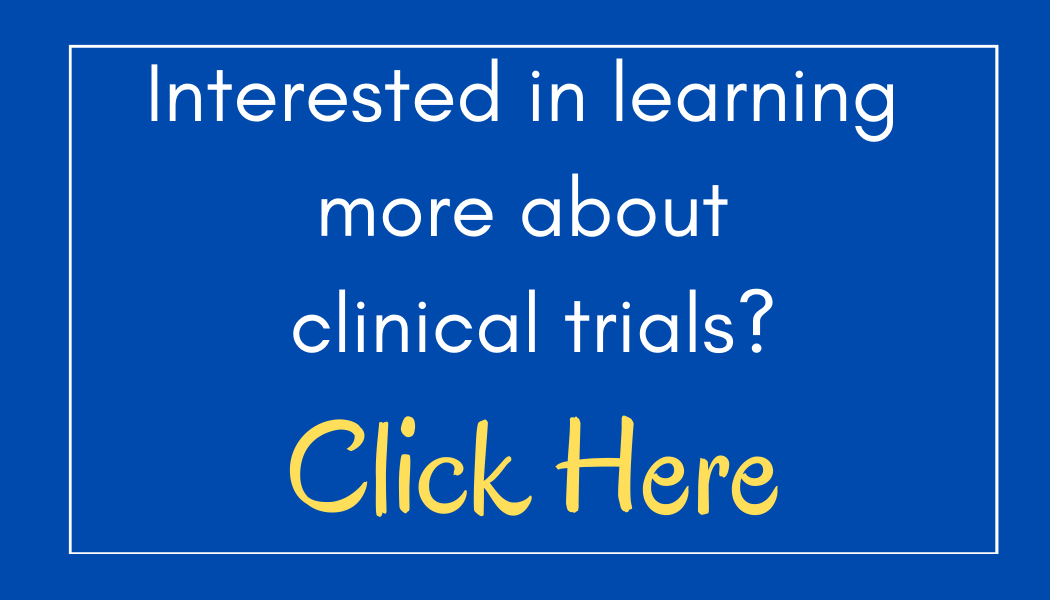- Call Us: (214) 691-1330
- Fax: (214) 691-6405
- Email: allergyhelp@daac-prc.com
FAQ
Frequently Asked QuestionsWhat is clinical research?
Clinical research is the study of new drugs and/or medical devices and better ways of using current medicines, which may improve treatment of a disease. Participation in clinical trials by patients and physicians is an essential part of the development of new drugs and medical devices.
Before a pharmaceutical company can initiate testing in humans, it must conduct extensive pre-clinical or laboratory research. This research typically involves years of experiments in animal and human cells. The compounds are also extensively tested in animals. If this stage of testing is successful, a pharmaceutical company provides this data to the FDA, requesting approval to begin testing the drug in humans. This is called an Investigational New Drug application (IND).
How are experimental drugs tested in humans?
The clinical testing of experimental drugs is normally done in three phases, each successive phase involving a larger number of people. Once the FDA has granted a New Drug Approval (NDA), pharmaceutical companies also conduct post marketing or late phase three/phase four studies.
A Phase One Study:Phase I studies are primarily concerned with assessing the drug’s safety. This initial phase of testing in humans is done in a small number of healthy volunteers (20 to 100), who are usually paid for participating in the study. The study is designed to determine what happens to the drug in the human body – how it is absorbed, metabolized, and excreted. A phase I study will investigate side effects that occur as dosage levels are increased. This initial phase of testing typically takes several months. About 70 percent of experimental drugs pass this initial phase of testing.
A Phase Two Study:Once a drug has been shown to be safe, it must be tested for efficacy. This second phase of testing may last from several months to two years, and involve up to several hundred patients. Most phase II studies are randomized trials. One group of patients will receive the experimental drug, while a second “control” group will receive a standard treatment or placebo. Often these studies are “blinded” – neither he patients nor the researchers know who is getting the experimental drug. In this manner, the study can provide the pharmaceutical company and the FDA comparative information about the relative safety of the new drug, and its effectiveness. Only about one-third of experimental drugs successfully complete both phase I and phase II studies.
A Phase Three Study:In a phase III study, a drug is tested in several hundred to several thousand patients. This large-scale testing provides the pharmaceutical company and the FDA with a more thorough understanding of the drug’s effectiveness, benefits, and the range of possible adverse reactions. Most phase III studies are randomized and blinded trials. Phase III studies typically last several years. Seventy to 90 percent of drugs that enter phase III studies successfully complete this phase of testing. Once a phase III study is successfully completed, a pharmaceutical company can request FDA approval for marketing the drug.
Post Marketing – Late Phase Three/Phase Four StudiesIn late phase III/phase IV studies, pharmaceutical companies have several objectives: (1) studies often compare a drug with other drugs already in the market; (2) studies are often designed to monitor a drug’s long-term effectiveness and impact on a patient’s quality of life; and (3) many studies are designed to determine the cost-effectiveness of a drug therapy relative to other traditional and new therapies.
Should you participate in clinical research?
People participate in clinical research for a variety of reasons. People who volunteer for phase II and phase III trials can gain access to promising drugs long before these compounds are approved for the marketplace. They typically will get excellent care from the physicians during the course of the study.
The patient’s rights and safety are protected in two important ways. First, any physician awarded a research grant by a pharmaceutical company or the National Institutes of Health (NIH) must obtain approval to conduct the study from an Institutional Review Board. The review board, which is usually composed of physicians and lay people, is charged with examining the study’s protocol to ensure that the patient’s rights are protected, and that the study does not present an undue or unnecessary risk to the patient. Second, anyone participating in a clinical trial in the United States is required to sign an “informed consent” form. This form details the nature of the study, the risks involved, and what may happen to a patient in the study. The informed consent tells patients that they have a right to leave the study at any time.
The study procedures are fully explained to the potential participant. Only after our staff has answered all questions a patient may have regarding the study does the patient then give written informed consent.
Patients considering participating in clinical research should talk about it with their physicians, medical caregivers, and family members. They also should seek to understand the credentials and experience of the individuals and the facility involved in conducting the study.
- Has this medication been tested before?
- Do I have to stop taking my asthma or allergy medications to participate in the trial?
- How long will the trial last?
- What treatments will be used and how?
- What is the main purpose of the trial?
- How will patient safety be monitored?
- Are there any risks involved?
- What are the possible benefits?
- What are the alternative treatments besides the one being tested in the trial?
- Who is sponsoring the trial?
- What if I want to stop the trial?
- What happens if I am harmed by the trial?
- Can I opt to remain on this treatment, even after termination of the trial?
What To Expect When Volunteering For A Study?
The following steps will give you an idea of what to expect if you participate in a research study:
- Screen and pre-qualify over the phone
Our recruiter will provide you with information about current enrolling studies. You will be asked for information regarding your medical history to find the right study for you. If you pre-qualify, your screening appointment can be scheduled. - Come in for your Informed Consent/screening appointment
During this visit, your medical history will be reviewed, and you will be provided with detailed information about the study in which you are planning to participate. Trained clinical research coordinators will oversee your visit and will be available to answer any questions you may have. - Enroll in the Study
If you qualify for the study after your screening visit, you will be enrolled in the research study. This may include study related medication, devices, medical procedures and physical exams. You will be made aware of future appointments. - Completion of study
Some studies may last only a day while others can last up to a year or longer. You will be made aware of the length and expectations of your particular study when you enroll. Your medical information and analyses will be closely tracked, and information will be provided to the pharmaceutical companies. - Compensation for Time and Travel
For most research studies, patients are compensated for some time and travel that is involved in study participation. Each study compensates study volunteers differently, and amounts will vary.
Why Participate in a Clinical Research Study?
Benefits of participation include:
- The sponsoring company pays for all medical care/visits related to the research study.
- The sponsoring company pays for all laboratory tests related to the research study.
- The sponsoring company provides all study related medications.
- Possibly receiving a new medication or new improved medication to treat your condition.
- You will receive monetary compensation for some time and travel expenses.
- You are part of a process that is essential in the development of medications.
How Do I Participate?
If you live in the Dallas/Ft. Worth area and are interested in participating in one of our research studies please call us at (214) 361-5555 or email us at rebecca.lindsey@daac-prc.com
Helpful Websites?
www.foodallergy.com
This website is geared towards raising public awareness on food allergies through media, education, and research efforts. It is a great communication link among patients and families of patients with food allergy. This website also addresses food allergy and children. There are many activities and project ideas on ways kids can get involved with educating others on food allergies.
www.aaaai.org
This website has up to date information regarding allergies and asthma for adults and kids. You can find topics such as- Camping with allergies and asthma, back to school tips, growing up with allergies addressed on this website. If you need information regarding a topic in particular you can submit the "Info Request Form." Don't forget to visit the Asthma Wizard while checking out this website: an interactive tool that allows kids to learn more about asthma.
www.aanma.org
Allergy and Asthma Network/Mothers of Asthmatics (AANMA) is an organization dedicated to helping people affected by allergies and asthma through education, advocacy , community outreach and research.
This website offers educational materials, monthly award-winning publications, and a toll free helpline.
www.lungusa.org
The American Lung Association is one of the oldest voluntary health organizations in the US. The ALA today addresses lung disease in many forms including asthma, tobacco control, and environmental health. To get the most up to date information on current research and treatment guidelines check out this website.
www.acaai.org
This website represents the American College of Allergy, Asthma, and Immunology, a professional association of close to 5000 allergist and immunologist. The ACAAI is dedicated to improving quality of patient care in allergy and immunology through education and research. This website can help you locate an allergist as well as get more educational information regarding allergies, asthma, and immunology
www.nationaljewish.org/
National Jewish Health is a non-profit clinical, research, and educational facility which specializes in lung, heart, and immune disorders. Their dedication to heal, discover, and educate patients is one of their primary focuses. On their website, you can find educational tools such as health information on various conditions, wellness tools, a medical glossay, among other helpful resoursces.


